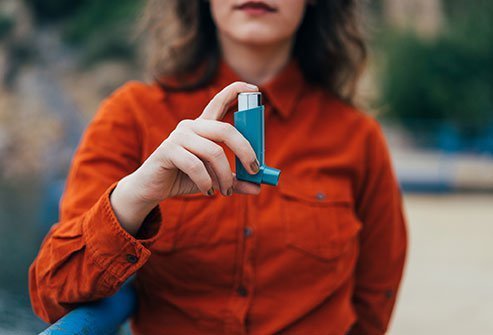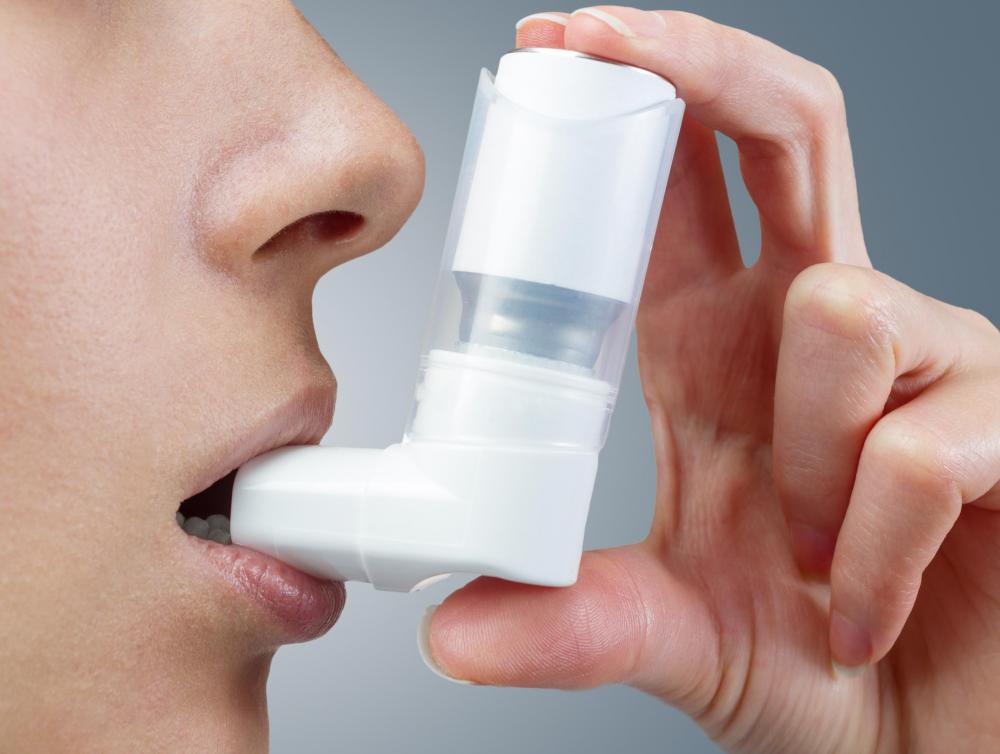
How to Get an Inhaler without Health Insurance | An Expert Guide
Difficulty breathing, chest tightness, and wheezing are all symptoms of asthma. Nobody wants to have asthma. Despite this, it’s a pretty regular occurrence. According to the Centers for Disease Control and Prevention, asthma affects more than 5.1 million individuals in the United States (CDC). When they are children, they typically have a more challenging difficulty dealing with the disease.
Asthma episodes are more common in children, and these attacks are more likely to place them in the emergency department. According to the CDC, it’s one of the leading causes of children missing school. Thus, this post will show you how to get an inhaler without health insurance.
Making sure you have the medicine you need when you need it is one approach to stay healthy. However, it is sometimes easier said than done. Many folks can’t afford even one inhaler, much alone two rescue inhalers.
According to research, the median out-of-pocket cost of asthma medicines is about $2,000 per year. So, why are these potentially life-saving drugs so costly?
After the US Food and Drug Administration (FDA) restricted a popular component in many inhalers in 2008, the price skyrocketed. CFCs, or chlorofluorocarbons, have been discovered to destroy the earth’s ozone layer.
Consequently, pharmaceutical corporations created new inhalers, patented them, and hiked their costs. Lower-cost generics took years to be on the market. While there are currently just a few generic inhalers on the market, many have been authorized in recent years.
Asthma treatments, however, may be pricey. You do, however, have a few choices for easing the pain of the pricing. Here are a few of the best ways to purchase an inhaler without having health insurance.
What is an Inhaler?

An inhaler may be required if you have breathing issues or asthma. An inhaler, also known as a bronchodilator, is a device that helps individuals get medication into their lungs rapidly and efficiently. The drug comes in the form of a vapor or spray delivered by a pump to aid in opening congested airways. To treat respiratory issues, there are two kinds of inhalers.
How to Get an Inhaler without Health Insurance

Asthma is a disease that affects both children and adults. When somebody has asthma, their lungs become hyper-responsive to triggers, causing their airways to become irritated, their chest muscles to tighten, and sometimes an excess of mucus, or phlegm, to be produced.
It might be difficult to breathe when this occurs. The most common cause for using an inhaler is asthma. An inhaler may immediately alleviate symptoms for people with asthma experiencing symptoms or a more severe rise of symptoms known as an asthma attack.
Inhalers, as previously said, maybe pretty costly. As a result, you may acquire an inhaler without healthcare coverage by completing these steps:
Shop around for drugstore pricing
Even if you have insurance, not all pharmacies charge the same price for the same drug. Make a few phone calls to discover who has the most excellent deal. Better still, use a review app to quickly locate the lowest price at a nearby drugstore.
Some people may even compare prices at club shops with pharmacies that are sometimes available to non-members. Using a mail-order alternative might potentially save you money.
Think about Medicaid or CHIP.
You or your kid may be eligible for prescription drug coverage via Medicaid or the Children’s Health Insurance Program, depending on your income and other state conditions (CHIP). These programs provide free or low-cost health insurance to children and teenagers up to 19.
Look for a patient-assistance program that may help you.
When you’re having trouble paying for medicines, it might seem as though no one is on your side. However, some organizations wish to assist. The Asthma Foundation of America, for example, has regional branches.
These organizations can also help you in locating local discounts. Copay assistance programs are offered by various NGOs and even medication corporations themselves.
Take advantage of a manufacturer’s coupon
Some manufacturers have programs to assist you in paying for your medication. To determine whether you qualify for any programs, contact the maker of your inhaler.
Attempt to get your coverage overturned.
If you have health insurance, but your plan doesn’t cover your medicine, speak with your doctor about filing an appeal. Prior authorizations are required by specific insurance plans, which means you’ll need approval from your insurance company as well as a particular request from your physician before you can fill your medication. If you have insurance, contact your provider to begin the procedure.
Types of Inhaler
Metered-dose inhalers
These include a pressurized drug canister that fits into a boot-shaped plastic mouthpiece. Pushing down on the canister causes the drug to be discharged from the boot. When you inhale, metered-dose inhalers may automatically release medicine.
They may also include a built-in dosage counter or a mobile app that you may download. This will allow you to keep track of how many dosages are left. If your dosage doesn’t include a counter, we suggest buying a separate electronic dose counter so you know when your medicine is running low.
Dry powder inhalers
Instead of forcing the medicine into your lungs by applying pressure on the canister, this inhaler functions by sucking the drug into your lungs by taking quick, deep breaths. Inhalers with dry powder may carry up to 200 doses metered into single-dose devices. To keep the quantity of medicine in the inhaler under control, you must fill it before each treatment.
How to Use a Metered-Dose Inhaler

It’s critical to follow these guidelines while using your metered-dose inhaler without a spacer for the most outstanding results:
- Remove the cap. Make sure the interior of the mouthpiece is clean.
- Before each usage, vigorously shake the inhaler 10 to 15 times.
- Take a deep breath out and attempt to expel as much as you can.
- Place your hand over the canister and your lips over the mouthpiece to make a tight seal.
- Press down on the inhaler once as you begin to breathe in gently through your mouth.
- Continue to inhale slowly.
- To allow the drug to penetrate deeply into your lungs, hold your breath and gently count to ten.
- Slowly exhale through your mouth.
- If you’re taking an inhaled pain reliever, take a one-minute break between puffs. There is no need to wait a minute between puffs for other drugs.
- Remove the cap and replace it. Make sure it’s securely shut.
- Gargle and spit after rinsing your mouth with water. This helps to lessen the adverse effects of your medication.
- Make sure your inhaler is clean.
- Replace it before it runs out and keep it in a cold, dry location.
Frequently Asked Questions
What are the steps on how to get an inhaler without health insurance?
You can receive an inhaler even if you don’t have health insurance by completing these steps:
- Shop around for drugstore pricing.
- Think about Medicaid or CHIP.
- Look for a patient-assistance program that may help you.
- Take advantage of a manufacturer’s coupon
- Attempt to get your coverage overturned.
Is it possible for me to use an inhaler without a prescribed medication?
Yes. Mild instances of asthma may be treated with over-the-counter inhalers. Before buying an inhaler for the first time, you must consult with a doctor, as they may assist you in finding the proper prescription for you.
What is the price of an inhaler?
Prescription and over-the-counter choices will have different prices. The cost of a 90-ml albuterol inhaler is about $15. This may vary depending on the drugstore you go to. You can expect to spend roughly $35 for 11.7 g of Primatene Mist if you buy it online. This, however, will differ across pharmacies.
What factors do physicians consider when deciding whether or not you need an inhaler?
To establish whether you have asthma, your physician will do a physical examination. Checking your vision, ears, throat, nose, diaphragm, lungs, and skin is part of this process.
They’ll look at how you expel breath from your lungs to observe how you breathe. In some instances, they may do a lung function test, which includes monitoring your respiration before and after taking a bronchodilator. Doctors often prescribe an inhaler as a trial treatment to see whether it helps you breathe better.
Are there any home treatments that may assist with asthma?
Yes. Take a look at the following at-home cures to see if they may assist you:
- Straighten your back.
- Maintain your composure.
- Take calm, deep breaths as part of your breathing exercises.
- Remove asthma triggers from your home, including pet dander, pollen, and dust mites.
- Get warm liquids to drink
- Take a long, hot shower.
- Vitamins C, D, and E are recommended.
Are there any asthma inhaler adverse effects?
Yes. Inhalers have the potential for adverse effects, although the benefits nearly usually exceed them. Cough, sore throat, and nosebleeds are all possible adverse effects. Talk to your doctor about altering your prescription if any negative effects become too severe.
Asthmatics are more susceptible to difficulty breathing causes such as seasonal allergens, cold weather, smoking, etc. It may begin at any time in one’s life.
Conclusion
In conclusion, asthma is a lung illness that causes your airways to constrict and generate excess mucus, making it harder to breathe. Although it is a chronic condition that you cannot treat, the daily symptoms may be managed using inhalers. Thus, the tips on how to get an inhaler without health insurance above will aid you immensely.



